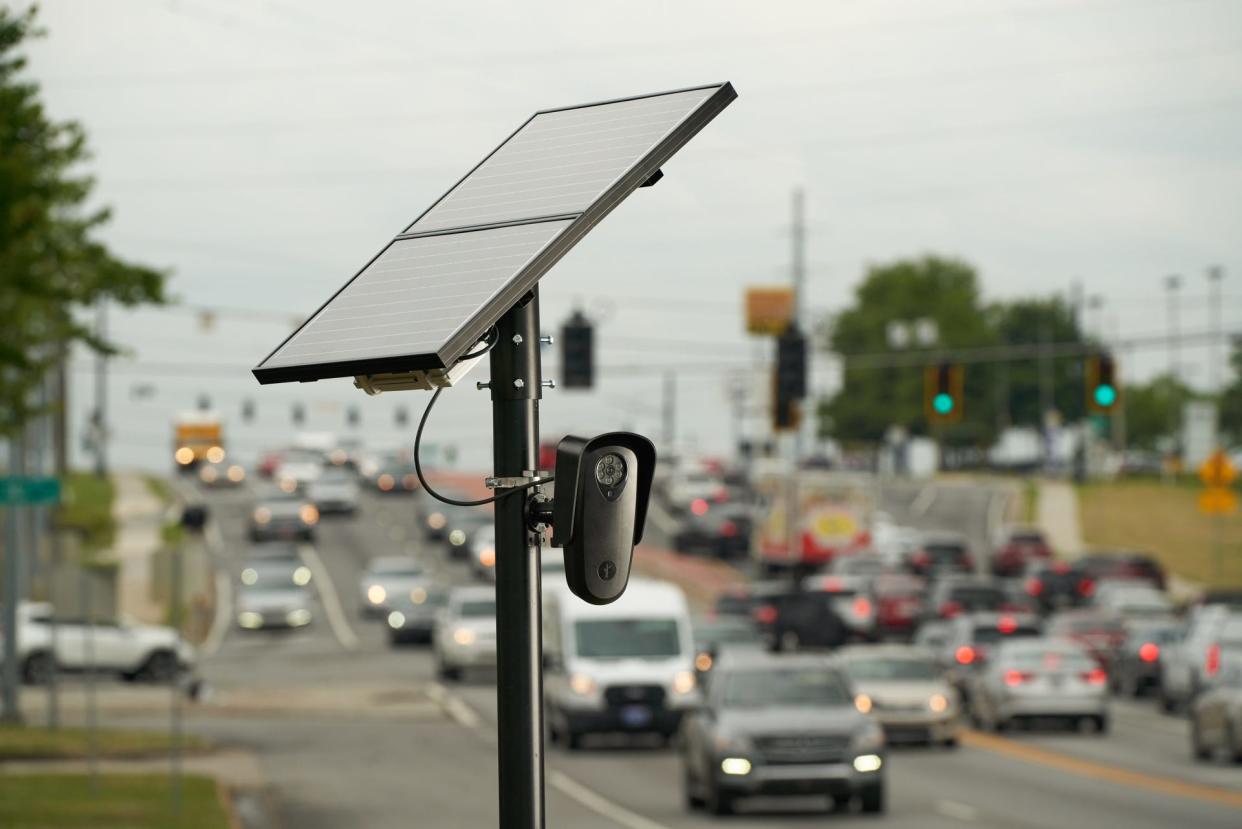Norton rejects surveillance cameras a week after Akron's approval of Flock Safety system

Norton City Council on Monday decided not to consider buying a camera system capable of reading license plates that’s been recently approved by other Summit County municipalities.
The system was sought by Norton Police Chief John Dalessandro and considered by council a week after Akron City Council approved a Flock Safety agreement.
Eye on crime? Akron preparing to join expanding traffic surveillance network; police say cameras with AI help solve crimes
Northern Summit communities to use license plate readers: Flock Systems installs automatic license plate readers in Macedonia, Northfield Village
The rejected $80,250 proposal would have placed 15 “Flock Falcon” cameras capable of reading license plates at strategic, unidentified spots throughout Norton. The data captured by the cameras can be used to track vehicle movements through communities and used in police investigations.
On June 6, Akron City Council approved a Flock system with 145 cameras. The city will spend just over $400,000 on the cameras, artificial intelligence software, storage and other equipment. The cameras will be installed with a focus on high-crime areas.
Other county municipalities, including Macedonia, Twinsburg and Northfield, have already contracted with Atlanta-based Flock Safety for systems in their communities.
Cost concerns and hacking fears
Norton council members opposed to the system cited cost and privacy as their primary concerns.
Council member Charlotte Whipkey said the cost of the system had climbed and a decision to cancel the program before the agreement expired would cost the city $500 per camera.
Whipkey also cited the possibility of hacking as a reason for her opposition. The concern was raised during prior discussion of the surveillance system and the councilwoman argued it was a legitimate one.
“It was also asked about hacking. Well, my question is they’ve only got 1,500 [clients] across the nation,” she said at the meeting. “Perhaps they just haven’t brought anybody’s attention to them to make it worthwhile to hack, or they haven’t upset the right person that has the capabilities of doing so.”
Adam Schwartz, senior lawyer at the Electronic Frontier Foundation, said information acquired by Flock cameras could be mined by nefarious individuals or organizations able to breach the system. The EFF, founded in 1990, is a nonprofit organization that defends civil liberties and privacy in the digital arena.
“[The concerns] include, No. 1, organized crime or foreign nations stealing the data and using it to harass or commit identity theft,” Schwartz said in a recent phone interview.
Those with access to data acquired by the system, from law enforcement to home owners associations, are bound only by agreements that can be readily violated or ignored, he said.
He said government surveillance technology could lead to "political spying."
Hackers or unscrupulous individuals with access to information compiled by Flock or similar systems could use that information against political or religious opponents or for personal reasons, Schwartz said.
“Who went to a gun show and who went to a candidates rally and mosque?” Schwartz said. “There is tremendous concern about how this data is going to be used, abused and stolen.”
The benefits of Flock Safety surveillance
Flock Safety credits its cameras with a decline in crime in communities that have implemented its license-plate reading system. They are not used to write tickets, and information is written over after 30 days.
According to the company, the Falcon cameras capture the make, vehicle type, color, license plate (full, partial, or missing), state of the license plate, and various vehicle features, including damage and after-market alterations.
Norton City Council member Joe Kernan, who supported bringing the Flock system to the city, said the benefits outweighed the potential for misuse.
"I thought it was an opportunity to give the police a good tool to use," he said Tuesday. "I’m a bit disappointed that it was rejected."
Kernan said he understood residents' concerns about privacy, but said cameras are ubiquitous in today's society and the information collected was limited.
"I think the possible negatives are so remote it doesn't make sense to not give the police this tool," he said.
Whipkey, however, argued that constraints put on system users was inadequate.
“The biggest thing: There’s no laws governing this,” Whipkey said. “None, whatsoever. We don’t have any, the state has none, the feds don’t have any. That right there ought to be a red light going off in everybody’s heads.”
Whipkey said she had spoken with a couple of residents who support the cameras, but many who are against them.
Kernan, chairman of the Safety Committee, and council member Scott Pelot voted to bring the proposal forward. Council members Whipkey, Paul Tousley, Doug DeHarpart, Jamie Lukens and Ben Bates voted against doing so.
Leave a message for Alan Ashworth at 330-996-3859 or email him at aashworth@gannett.com. Follow him on Twitter at @newsalanbeaconj.
This article originally appeared on Akron Beacon Journal: Norton rejects surveillance cameras a week after Akron's approval

